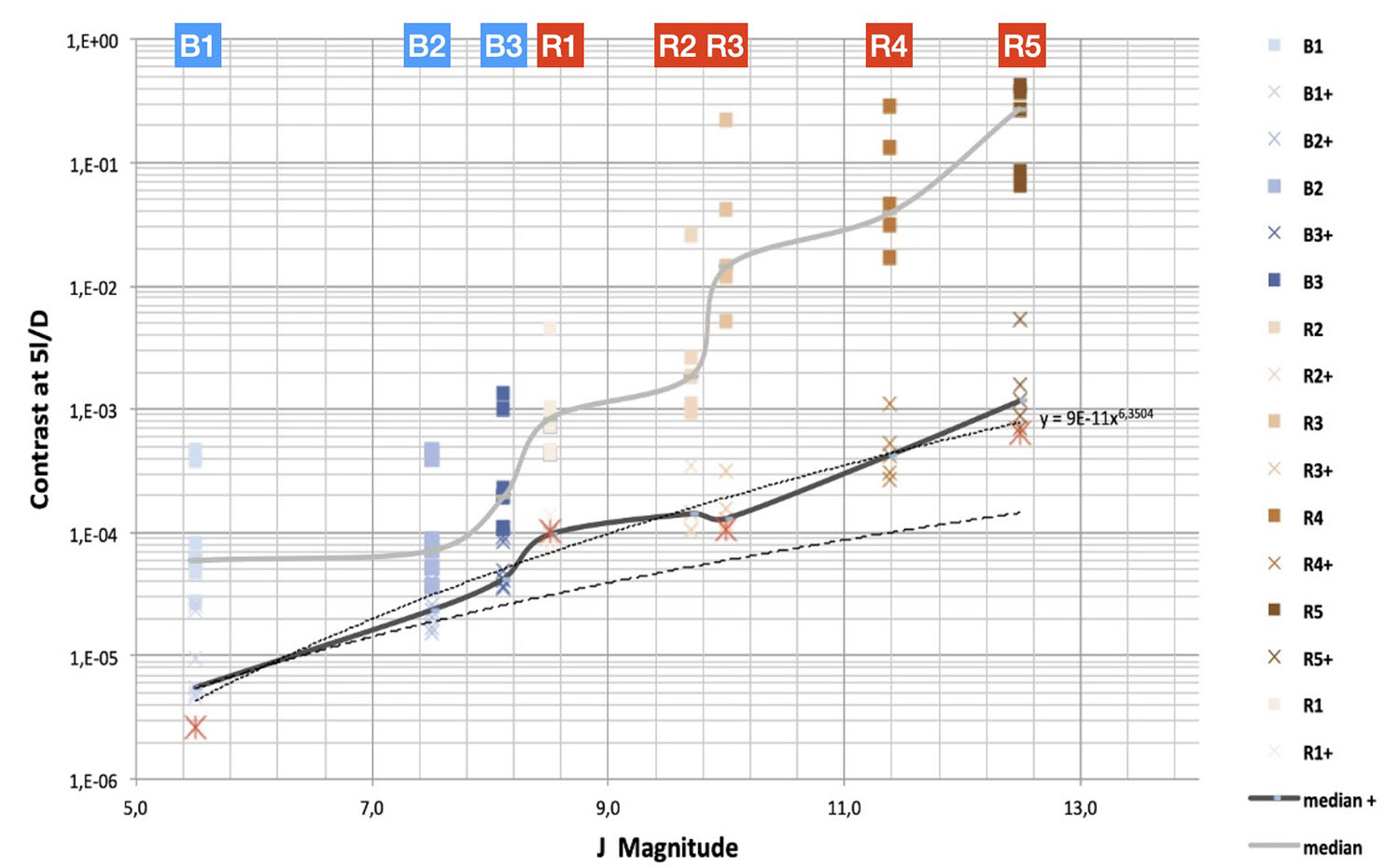Upgrading SPHERE with the second stage AO system SAXO+
- Paris Observatory, LESIA, Meudon, France (anthony.boccaletti@obspm.fr)
SAXO+ is a project to upgrade the SPHERE extreme Adaptive Optics instrument at the VLT to boost the current performances of detection and characterization of exoplanets and disks.
The main science drivers are 1/ to access the bulk of the young giant planet population down to the snow line (3-10 au), to bridge the gap with complementary techniques (radial velocity, astrometry); and 2/ to observe fainter and redder targets in the youngest (1 − 10 Myr) associations compared to those observed with SPHERE to directly study the formation of giant planets in their birth environment.
SAXO+ is a second stage AO system equipped with an IR pyramid wavefront sensor for increasing the sampling frequency (from ~1 to 3 kHz) as well as the sensitivity in the infrared (+2-3 mag). SAXO+ is developed in coordination with the ESO technology development group and will serve as a demonstrator for the future planet finder (PCS) of the ELT. SAXO+ has concluded its consolidation phase in Apr 2024 and will continue its development to aim for on-sky testing in 2027.
After introducing the science cases, we will discuss the SAXO+ project in particular the system choices and the estimation of performances based on the most recent simulations (see Figure).

Figure : Raw contrast estimated for SPHERE (square sympols) and SAXO+ (asterisque symbols) for several target properties (B for bright targets, R for red targets) and assuming 0.7'' seeing and tau_0=5.5ms.
How to cite: Boccaletti, A.: Upgrading SPHERE with the second stage AO system SAXO+, Europlanet Science Congress 2024, Berlin, Germany, 8–13 Sep 2024, EPSC2024-1186, https://doi.org/10.5194/epsc2024-1186, 2024.